
Do you have what you need to make your garden grow?


Garden Center
Store Hours
Mon-Sat:
6:00am - 11:00pm
Sun:
7:00am - 8:00pm
Curbside:
09:00am - 6:00pm
Location
Popular at Your Garden Center
Summer Popular Garden Supplies and More
Explore June Live Plants
Garden Project Calculators
;Resize=(703,395.44))
Grass Seed Calculator
When you're ready to seed your lawn, our calculator helps you estimate the amount of grass seed you'll need to get the job done.
;Resize=(703,395.44))
Mulch Calculator
Enter your preferred material, the square footage and mulch depth of the coverage space for accurate results.
;Resize=(703,395.44))
Fencing Calculator
We'll calculate the amount of fencing you should purchase based on your property needs.
Shop Outdoor and Garden Brands
Frequently Asked Questions About Gardening
Which planting zone am I in?
Check the USDA growing zone map, as planting zones have shifted over the years. Planting zones with higher numbers can plant earlier in the year. Choose plants that are meant for your zone and increase your odds of successful gardening.
Can I just put seeds in the ground?
If the ground isn't frozen solid and the soil isn't cold, consider planting your fruit, veggie, or flower seeds directly into your garden. This is called the "direct sow" method. The time to plant will be after the threat of frost is gone for the season, as sprouts and seedlings can't weather those conditions. You can also start your seeds indoors if you'd like. Consult your seed package for when and how to sow seeds.
How do I plant fruit seeds?
Read your seed packet for the best info on how to grow fruits, veggies, and spring flowers — indoors or outdoors. Requirements vary with each seed type. Some seeds should only be planted indoors, and your seed envelope will tell you that, too. You'll be a pro at planting seeds in no time.
Do I have to harden off my seedlings before planting them outside?
Yes, if you raised plants indoors from seeds in your own plant nursery, harden them first before you transplant them. Hardening allows your seedlings to adjust to outdoor life and the fluctuating spring weather, making them more resilient against cold snaps. It slows their growth until they're strong and ready to take off during a spring warm front.
How do I plant a transplant or baby plant?
Squeeze the plastic around the plant to loosen the soil. Carefully coax the plug of dirt with the plant into your palm, then place it into the hole you dug for it. Make sure the top of your transplant's soil is even with the garden soil, and carefully press the earth into place. Avoid leaving the plant as an island with a moat around it, and don't pack the ground too tightly. Your plant baby needs to breathe.
Should I use peat moss starters or coir starters?
Seed starters, full of nutrients in convenient pots or pellets, work for new and experienced gardeners alike. You don't have to use these starters if you're planting in soil, but you may want to. Starting seeds in peat pots works best for delicately rooted plants like carrots and beets, as well as flowers that require an acidic pH. Some people prefer coir starters instead, as they have a neutral pH. Check what type of soil your plants need to help narrow it down, and chat with a garden center associate if you need more info.
Garden Project Ideas
The Home Depot Garden Center at N Melbourne
Celebrate Springtime Gardening
It's time to start thinking of spring. Clean out the shed and sweep the gazebo to prepare for fragrant breezes, warmer temperatures, and sprouts poking up out of the ground. Planting seeds indoors means you'll be ready to transplant young veggie plants and spring annuals when the frosts are through and the ground thaws. You might even want to plant organic seeds directly into the earth. What better way to start than by exploring your favorite local plant nursery?
Plant Hardiness Zones Explained
The first thing you should know when planting vegetables, spring flowers, and other seeds is your planting zone. Every location in the U.S. and its territories is sorted by climate. Find your zone on the USDA plant hardiness zone map and learn when to plant seeds.
For example, you could transplant bell peppers outdoors in mid-March in Zone 10, but not until the end of May in Zone 4. For best results, choose plants in your zone number or less. In other words, a Zone 8 garden can support plants listed as Zones 1–8. The timeframe to direct sow outdoors in your garden is often around a month later than the indoor start date. Always read your seed packet for details. If you start seeds later than recommended, it's not ideal, but it will likely even out as time passes.
Gardening in Your Growing Zone
Your climate is excellent for growing year-round if you've got good soil. Why not think of springtime planting now? With such beautiful weather, you can direct sow many types of seeds. From classics like peppers and cucumbers to spinach and green beans, you have a wide variety of options. Last year's garden might still be growing if there was no reason to put it to bed — especially if it's close to the house or in a greenhouse. In that case, tend it as usual.
Some seeds, like tomatoes, do best when started indoors and aren't recommended as direct sows. Read your seed packets and adjust accordingly for your region. Although the warm temps are excellent for growing, check your soil to make sure it's rich enough and a good match to your plants. Sandy soil and Miami limestone will need soil amendments to adjust the texture and pH for a successful garden if you're growing many garden plants. If you go with native plants like muscadines, persimmons, blueberries, and red mulberries, they're already adapted to the soil of southern Florida and will grow just fine.
Start Seeds Indoors
Save money and gain the satisfaction of growing your garden from seeds by starting them indoors in your own plant nursery. We've got all the seed starter supplies you'll need. For best results, you'll want grow lights or a warming mat to go with your seed tray or plant pots. If you're planting a larger garden, use seed trays — like the ones you see sprouts in at your N Melbourne Garden Center — to stay organized and plant tiny soil plugs when the time comes. You can also use pots with potting soil and seed starter mix.
Measure your finger to use it as a ruler. In general, you'll plant 3–5 seeds, then press them into the soil to the depth you need with your finger. Mark where you planted the seeds with a plant tag or toothpick. Otherwise, it'll be a surprise when the sprouts push out of the soil.
Sprouts
Prepare your seed sprouts for outdoor life while they're still indoors. These inch-tall micro-seedlings are fragile but resilient. Seedlings don't get all this pampering in nature when they volunteer and grow wherever they please, so they can handle more than you think. However, don't go overboard, as your sprouts are still babies. You can even use an oscillating fan on low to mimic the wind and strengthen their stems.
Harden Your Seedlings
Once your seedlings have sprouted and are a few inches tall, start hardening them off. This process of gradually introducing them to the outdoors makes them stronger in the long run. Hardening means you're less likely to lose your growing garden during a sudden cold snap.
Transplant Young Plants Into Their New Homes
When your plants have three or four true leaves — different from miniature seedling leaves — transplant them. In quality soil, dig a hole the same size as the dirt plug where your transplant has been growing. If your ground soil isn't fantastic, dig a slightly bigger hole and fill the extra space with nutrient-rich topsoil. Apply fertilizer as directed, either in the hole or on top of the soil after it's planted. Only apply as much as recommended, as you could burn and kill the plant instead of helping it.
Protect Your Garden With Mulch
Finish off your garden with mulch and compost. Mulch keeps your soil from drying out and controls weeds. Compost enriches the soil so your garden can grow even better. It may help foster larger and stronger plants that bear more fruit and flowers. Compost and mulch can be DIY creations, but you can also purchase them in-store. The next time you're looking for "mulch near me," stop by the Garden Center to get the right amount.
Greet the Spring
Don't miss a minute of growing season. Plan your garden and landscaping, prepare to fertilize your lawn, and browse The Home Depot nursery to find inspiration on what to plant when the weather warms. For those without lawns, consider adding a pellet grill or artificial grass to your outdoor space. Shop for the soil, fertilizer, and seeds you need in the aisles of your N Melbourne Garden Center, online, or on our mobile app. Let's get growing together.
Nearby Stores
Find Another Store
2075 Viera Blvd
Rockledge, FL 32955
5.90 mi
Mon-Sat: 6:00am - 10:00pm
Sun: 7:00am - 8:00pm
2829 W New Haven Ave
West Melbourne, FL 32904
7.93 mi
Mon-Sat: 6:00am - 10:00pm
Sun: 7:00am - 8:00pm
200 N Courtenay Pkwy
Merritt Island, FL 32953
11.65 mi
Mon-Sat: 6:00am - 11:00pm
Sun: 7:00am - 8:00pm
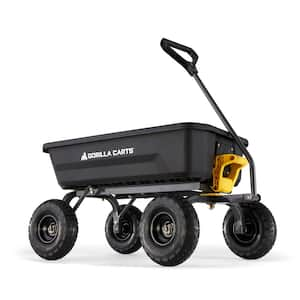
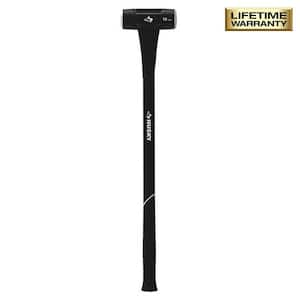
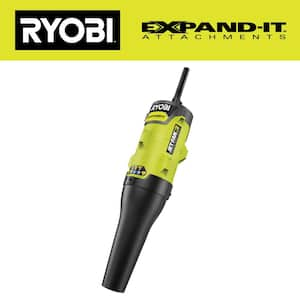
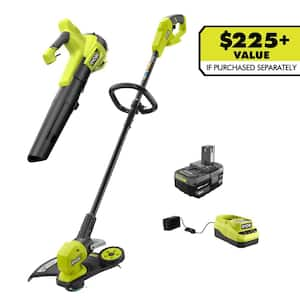
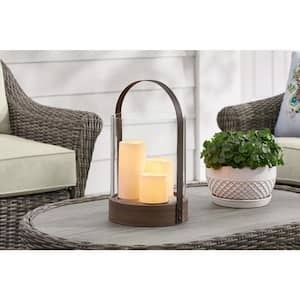
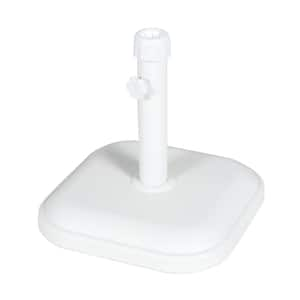
)
/17_514245_S_012_Product%20Image%20(square).jpg?im=Resize=(300,300))
)
)
)
;Resize=(300,300))
/2023_P2_Rain_Barrels_Product%20Image%20(square).jpg?im=Resize=(300,300))
)
)
)
)
;Resize=(300,300))
;Resize=(300,300))
;Resize=(300,300))
)
;Resize=(300,300))
;Resize=(300,300))
)
/12_SOIL_B_0420_Social%20media%20(square).jpg?im=Resize=(300,300))
;Resize=(300,300))
;Resize=(300,300))
;Resize=(300,300))
;Resize=(300,300))
)
;Resize=(300,300))
)
;Resize=(300,300))
;Resize=(300,300))
/18Patio_Camden_Seagrass_5pcSeating_Planters_302468736_DTL3_L_Social%20media%20(square).jpg?im=Resize=(300,300))
;Resize=(300,300))
;Resize=(300,300))
)
;Resize=(300,300))
;Resize=(300,300))
;Resize=(300,300))
;Resize=(300,300))
)
;Resize=(300,300))
)
)
.jpeg?im=Crop,rect=(363.69230769230774,1.2307692307692308,958.7692307692308,958.7692307692308);Resize=(300,300))
;Resize=(300,300))
;Resize=(300,300))
)
)
;Resize=(300,300))
)
)
;Resize=(300,300))
;Resize=(300,300))
)
;Resize=(300,300))
)
)
;Resize=(300,300))
;Resize=(300,300))
)
;Resize=(300,300))
/Capello_Spring_Mum_10in_Social%20media%20(square).jpg?im=Resize=(300,300))
;Resize=(300,300))
)
)
)
)
)
;Resize=(300,300))
)
)
;Resize=(300,300))
;Resize=(300,300))
;Resize=(300,300))
)
)
;Resize=(300,300))











































